Letter from Africa: Zimbabwe's flag fury
- Published
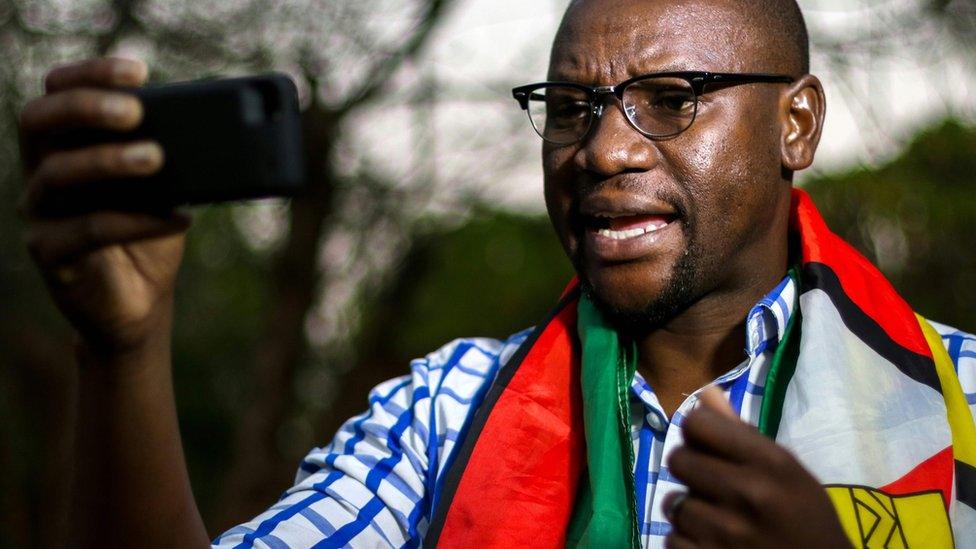
Pastor Evan Mawarire has been posting videos asking people "to be bold"
In our series of letters from African journalists, the film-maker and columnist Farai Sevenzo looks at why Zimbabweans are turning to their flag to demand accountability from politicians.
Very occasionally tremors appear on the Zimbabwean political landscape that point to a shift in prospects for this rich but beleaguered southern African nation.
For those of us who watch the changing fortunes of Robert Mugabe's Zimbabwe, the cautionary tale is always to expect the unexpected and to make no assumptions about the outcome.
President Mugabe's ruling Zanu-PF party is riven with fresh divisions over who will succeed him - influential figures and names that once commanded entire chapters in the history of the nation's revolutions have been cast aside.
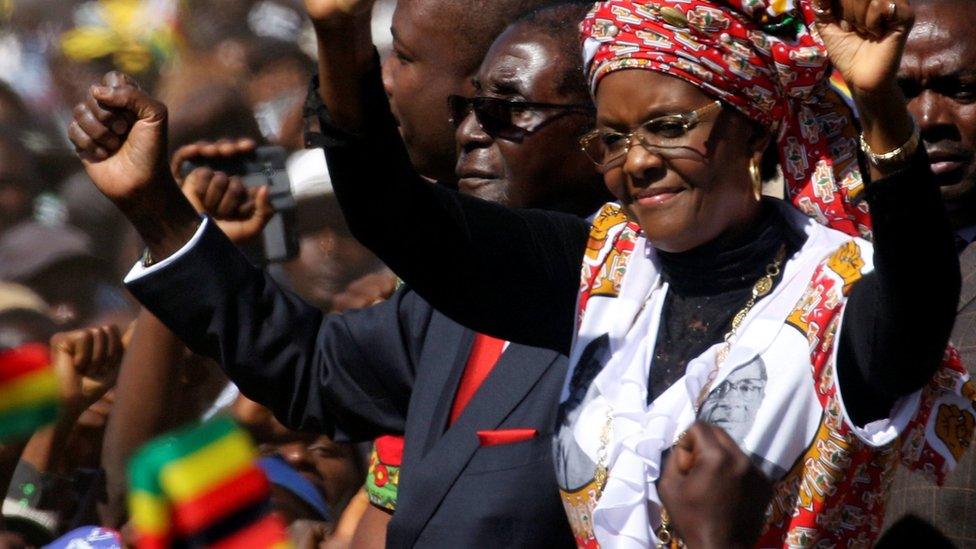
Grace Mugabe says her husband can rule from the grave
For his part, the 92-year-old has long considered talk of a future in which he is absent as tantamount to treason.
He is still the president and there is no vacancy for that post and the people, he says, should not be "confused by the confusionists".
And for the last two years, his younger wife Grace has forced her will into the debate, seen one vice-president fired and is gunning for another while declaring just the other day that if needs be, Mr Mugabe would continue to rule from his grave, external.
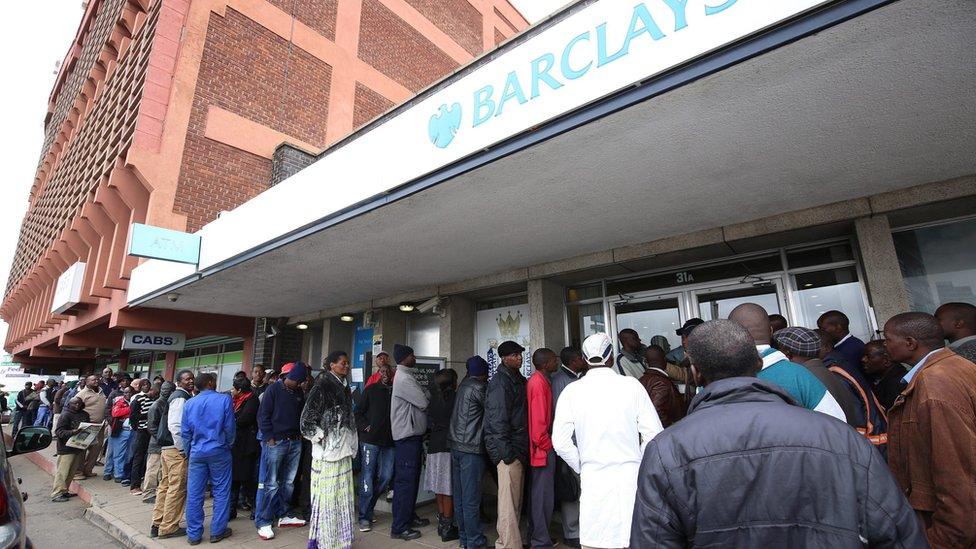
The cash crisis is worsening with long queues outside banks most days
Hyperinflation and Zimbabwe's famous billion and trillion dollar notes are a thing of the past, but now hard currency has been in short supply.
The liberalised dollar economy of 2009 is on the brink of collapse, there are long queues at banks which have limited the amounts people can withdraw, external and there are plans to introduce new bond notes to ease the cash-flow crisis.

Farai Sevenzo:

"No inquiry, no arrests - just a $15bn hole in the nation's coffers"

The country is importing more than it is selling, unemployment continues to soar, while a proud history of good education has only produced millions of vendors selling cheap goods and food to their fellow impoverished citizens as businesses fold around them.
The country's major hospitals have at times gone without water and electricity, and it surprises no-one that the president's daughter gave birth in Singapore, external rather than a local maternity hospital; and that Morgan Tsvangirai, the leader of the official opposition, has been undergoing treatment in a South African hospital, external.
The need for food is as real to millions as is the drought affecting all of southern Africa, and the politicians' preoccupation with the tragic soap opera of Mr Mugabe's last days on earth have offered no new plan to feed them and give them jobs.
Instead, the headlines this year have celebrated his 92nd birthday, while he announced in March that $15bn (£10bn) of the country's diamond wealth had been looted and simply disappeared.
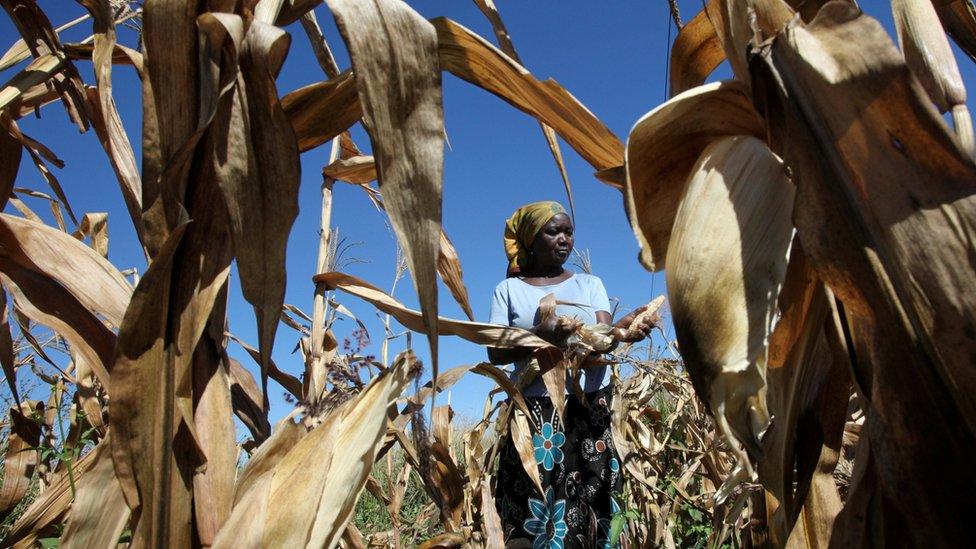
Zimbabwe has declared a state of disaster in rural parts of the country hit by the drought, the worst in decades
No inquiry, no arrests - just a $15bn hole in the nation's coffers.
'We are not afraid'
In the context of this trying background, a 39-year-old pastor called Evan Mawarire, based in the capital, Harare, took to social media, external last month and called for Zimbabweans to re-own their flag, to stop wishing they lived in another country, and to force the politicians to answer questions on their lack of accountability and corrupt ways without fear.
The hashtag #ThisFlag, external was born and internet-literate Zimbabweans within and outside the country began to air their frustrations, repeating the tag line "hatichada, hatichatya" - meaning in Shona "we've had enough, we are not afraid".
They say they will refuse to bribe policemen, they will watch and circulate tales of corruption, they will not parrot the ruling party's excuses, which have for years blamed Western sanctions for dismal delivery of services and the ailing economy.
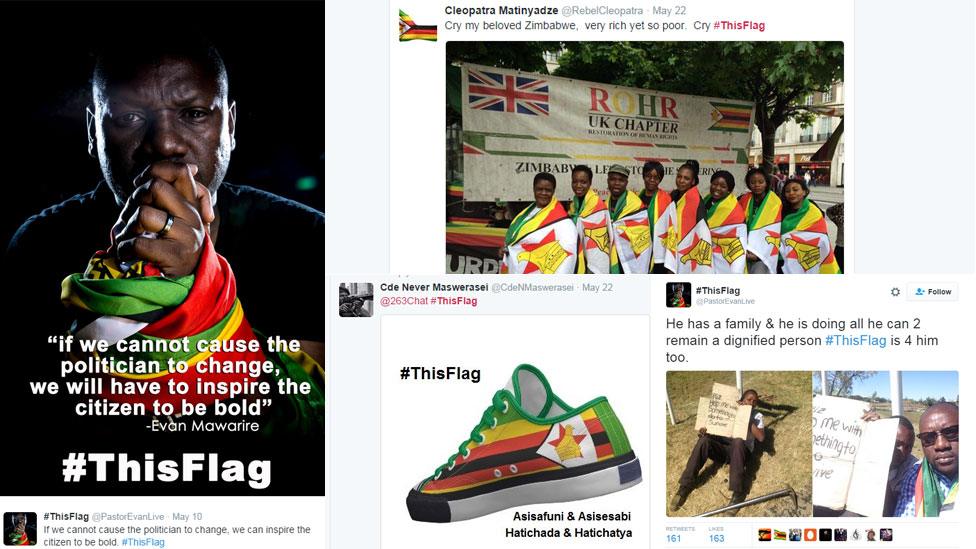
Government ministers say #ThisFlag is a debate dominated by those in the diaspora
Government loyalist ministers have dismissed the upstart #ThisFlag trend as an elitist diaspora-inspired movement that has been taking "to the Twitter", which would have no traction with the thousands of rural folk who have consistently voted President Mugabe back into power.
Yet even as journalists reached for ill-matching Arab spring comparisons of revolution born out of social media, it was clear that a few hundred thousand citizens with access to smart phones had started a debate, which was not linked to a moribund opposition, whose loyalties were to the flag of nationhood rather than to the politics of personality.
Zanu-PF elections have tended to be a united strategised persuasion of the electorate, which isolated the urban opposition and was not shy of violence and blatant bribery in money, maize or land.
And a large proportion of the citizens kept their heads down and went about their business as activists disappeared and bones were broken, external.
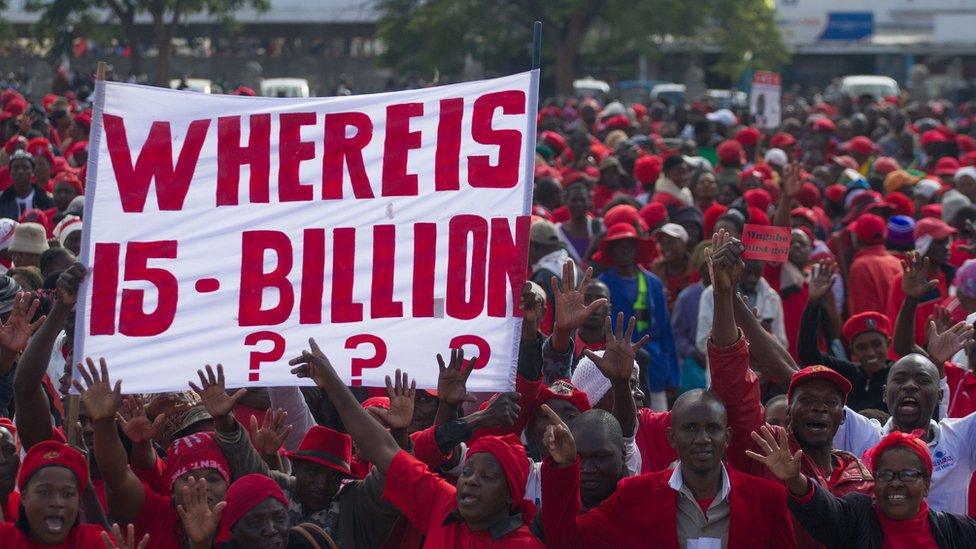
The opposition MDC has held several well-attended rallies recently
But the evidence of misrule is all around and if they can no longer afford to pay their children's school fees, they cannot afford to be apathetic.
What is more, Zanu-PF's formidable united front is no more, everywhere you look former Mugabe loyalists are spouting the bitter language of opposition.
Zimbabwe's next election is not due until 2018, but a "million man march" last week saw thousands of people on Harare's streets in a show of support for Mr Mugabe's candidature, while recent opposition marches in Harare and Bulawayo created a sea of red for the opposition Movement of Democratic Change (MDC).
Only, it must be said, is the new party of Joice Mujuru, Mr Mugabe's sacked vice-president, shy of a protesting presence in the country.
The starting gun for what is likely to be a game-changing election has been fired 18 months early.
And it will be a vote in which citizen apathy may well be a thing of the past.

More from Farai Sevenzo:
